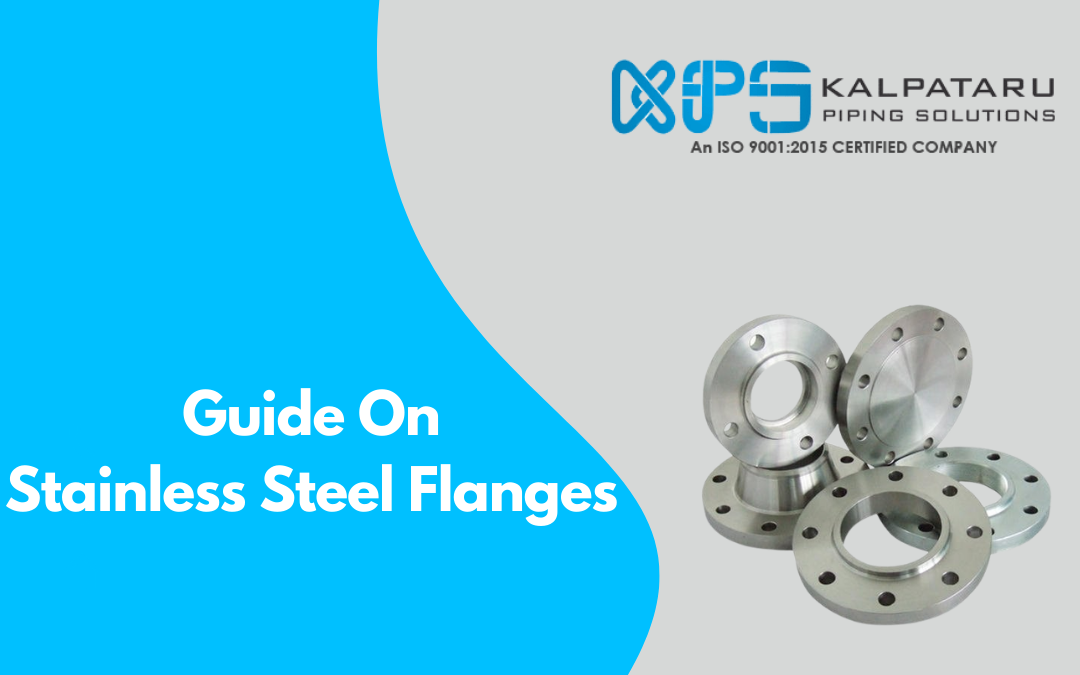What are Stainless Steel Flanges?
SS flanges serve as integral components in piping systems, linking two segments securely. They facilitate a pressure-tight connection and allow convenient access for inspection, cleaning, or modifications. Typically crafted from stainless steel, these flanges exhibit robust corrosion resistance and strength, rendering them suitable for diverse applications. Their remarkable ductility ensures reliable sealing across varying temperatures, preventing leakage or deformation. Additionally, stainless steel flanges boast excellent fatigue strength and outstanding resistance to creep, making them well-suited for challenging conditions like high temperatures and corrosive environments.
What are the standards for stainless steel flanges?
An SS flange, or stainless steel flange supplier, is crafted from stainless steel materials. Commonly adhering to material standards such as ASTM A182 Grade F304/L and F316/L, these flanges come in various Grades and pressure ratings, ranging from Class 150, 300, 600, to 2500. They find extensive use across industries due to stainless steel’s superior resistance to corrosion, offering improved performance in challenging environments. Additionally, stainless steel flanges present an aesthetically pleasing appearance, distinguishing them from carbon steel alternatives.
Various standards outline the essential chemical composition, dimensions, pressure ratings, and other criteria for materials used in piping system flanges and fittings. Notable standards for stainless steel encompass:
- AWWA C228 – which establishes the minimum material requirements and dimensions for stainless steel flanges in stainless steel piping systems.
- ASTM A182 – which covers forged or rolled components for piping systems designed for high-temperature service.
- ASME B16.5 – a dimensional standard applicable to pipe flanges and flange fittings, including those made of stainless steel.
- ASME B16.34 – a pressure/temperature rating applied to threaded and welded valves connecting flanges.
- ASME B16.47- specifically addressing large-diameter steel and stainless steel flanges.
Advantages of stainless steel flanges
Explore the benefits of stainless steel flanges in industrial applications. With exceptional corrosion resistance from chromium, they ensure longevity in challenging environments. Their resistance to chemical corrosion and oxidation makes them versatile. The polished finish adds aesthetic appeal and minimizes corrosion risk. The strength and resilience of stainless steel surpass basic carbon steel and outperform alternatives like aluminum, making them reliable in various conditions. Whether handling stress, temperature fluctuations, or ensuring a secure seal, stainless steel flanges consistently deliver outstanding performance, making them essential in industrial systems.
Application of SS Flanges
SS flanges supplier, with their impressive strength, corrosion resistance, and versatility, find application in a wide range of industries and settings. Here’s a glimpse into their diverse world:
1. Chemical Processing
Stainless steel’s ability to withstand aggressive chemicals makes it the go-to choice for pipes in chemical plants, refineries, and pharmaceutical manufacturing. Flanges ensure secure connections and prevent leaks, safeguarding both personnel and the environment.
2. Oil and Gas Industry
From drilling rigs to pipelines, high-pressure and high-temperature environments demand robust connections. Stainless steel flanges, with their exceptional strength and fatigue resistance, excel in oil and gas exploration, production, and transportation.
3. Food and Beverage Processing
Maintaining hygiene and product purity is paramount in the food and beverage industry. Stainless steel flanges, with their corrosion resistance and easy cleaning properties, ensure safe and hygienic transfer of liquids and ingredients.
4. Power Generation
In the pulsating heart of power plants, where heat and pressure reign supreme, stainless steel flanges stand strong. Their resistance to extreme temperatures and creep makes them vital for reliable operation of boilers, turbines, and other critical equipment.
5. Shipbuilding and Marine Applications
From salty seawater to harsh weather conditions, marine environments pose unique challenges. Stainless steel flanges, with their corrosion resistance and strength, ensure the smooth flow of fluids and secure connections onboard ships, oil rigs, and offshore platforms.
6. Water Treatment and Supply
Clean water is a precious resource, and stainless steel flanges play a crucial role in its distribution. Their corrosion resistance and durability make them ideal for water treatment plants, pipelines, and municipal water systems, ensuring safe and reliable delivery of clean water to homes and businesses.

